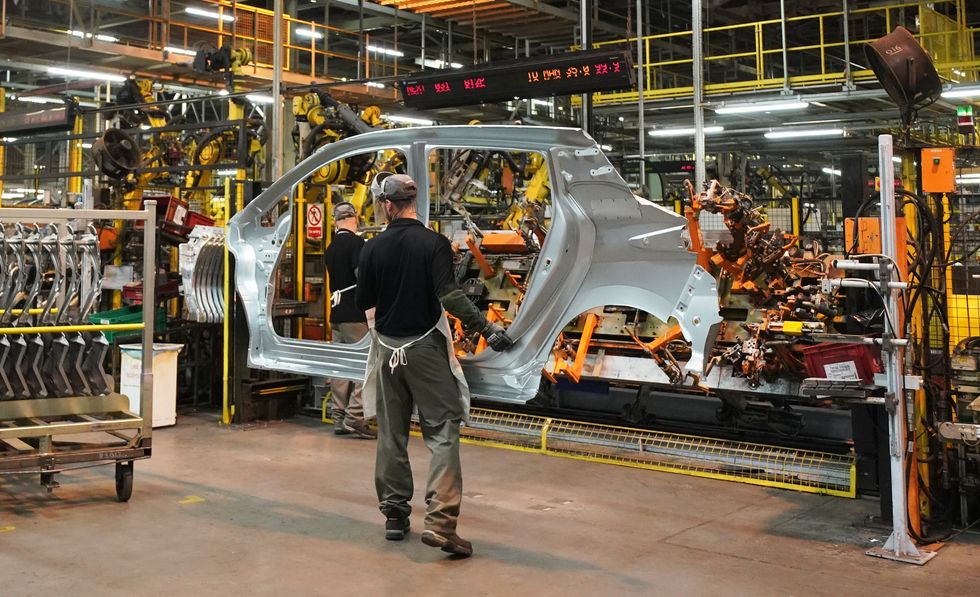
The terms of the 'rules of origin' are set to change in January 2024
PA
Factories could reduce production by up to 480,000 vehicles during the three-year period
Don't Miss
Most Read
Industry experts are calling on the European Union to take action and remove plans that would place a 10 per cent tariff on electric car exports from Europe.
A number of manufacturing giants including Renault, BMW and Mercedes-Benz have urged the EU to “act now” and help protect the automotive industry across the continent.
Some electric vehicle manufacturers could be hit with a massive £3.7billion bill over the next three years unless the EU drops restrictions between the bloc and the UK.
When goods are exported under the terms of EU free-trade agreements, they must comply with so-called “rules of origin”, with the standard rate on vehicles being either 40 or 45 per cent.
WATCH NOW: Labour on electric cars
The UK is temporarily exempt from this rule after leaving the European Union, although this is due to end in January.
The original plan for the rules of origin was to ensure car companies build vehicles using parts sourced from the UK or the EU, or they could face a 10 per cent tariff.
The European Automobile Manufacturers Association (ACEA) has suggested that complying with these rules would be “practically impossible” with many relying on parts made in China and other nations.
From January 2024 until the end of 2026, ACEA highlights how there will be a “second transitional period” with significantly more restrictive rules.
This would have a huge impact on electric vehicle manufacturers, with all battery parts and certain battery materials needing to be produced in the EU or UK.
It has been forecast that the compliance rate for this will be around 10 per cent in 2024.
Factories may reduce production by up to 480,000 vehicles during the three-year period unless the rules of origin regulations are abandoned.
Luca de Meo, president of the ACEA and chief executive of Renault Group, urged the European Union to amend the rules to ensure the market remained competitive.
He said: “Driving up consumer prices of European electric vehicles, at the very time when we need to fight for market share in the face of fierce international competition, is not the right move – neither from a business nor an environmental perspective.
“We will effectively be handing a chunk of the market to global manufacturers.
“Europe should be supporting its industry in the net-zero transition as other regions do – not hindering it.”
Car makers across the UK and EU are now calling for the tariffs to be delayed for a further three years.
A gathering is set to take place later this week between the joint EU-UK Brexit specialised committees, with many hoping a breakthrough can be made to protect the industry.
However, Thierry Breton, EU Commissioner for the Internal Market, said the Brexit deal could not be re-opened “just to appease some sectors of the motor industry”, according to the Guardian.
LATEST DEVELOPMENTS:

Experts fear the tariffs could see car makers hit with a bill of almost £4billion
PA
Under the current trade agreement, the rules of origin require that batteries be assembled in Europe, which will apply until December 31, 2023. The compliance rate is estimated to be around 99 per cent.













